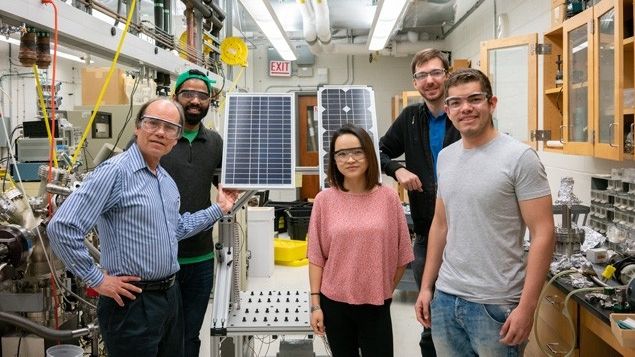Delaware: The Small State Big on Innovation
Option: 1
Delaware: The Small State Big on Innovation
21 OCTOBER, 2019 | KURT FOREMAN | INDIA GLOBAL BUSINESS

Some of the world’s most transformative innovations got their start in Delaware. Centrally located on the East Coast of the US, between Boston and Washington DC, Delaware is known for its global leadership in science, tech and agriculture thanks to the track record of successful Delaware companies such as DuPont, which has operated in the First State for more than 200 years.
Thanks to Delaware Governor John Carney, two new business incentives will ensure that Delaware continues its storied legacy of business friendliness and innovation. The Angel Investor Tax Credit offers a 25 per cent tax break to individual backers who invest a minimum of $10,000 in a qualified Delaware company. Businesses eligible for the incentive must have fewer than 25 employees and engage in innovation as their primary business activity. This tax credit includes and is not limited to energy, food technology, cellulosic ethanol, materials science technology, nanotechnology, biotechnology, medical device products, pharmaceuticals, diagnostics, biologicals, and chemistry.
The New Economy Jobs Tax Credit supports employers that add at least 200 new jobs in the state with an annual salary averaging $70,000, or 50 new jobs with salaries of at least $120,000.
Businesses are choosing Delaware because of its highly respected and trusted corporate law system; its enviable East Coast location, varied talent pool its commitment to diversity and ease of incorporation.
When you combine Delaware’s access to an exceptionally experienced and welcoming talent pool from some of Fortune 500’s most innovative companies, emerging entrepreneurs have the best of both worlds, as well as the wonderful quality of life Delaware has to offer.

Just ask research scientist, Sumedh Surwade, PhD. He joined Fujifilm in New Castle, Delaware after post-doctoral research at the University of Pittsburg and Oak Ridge National Lab.
He founded SAS Nanotechnologies and is developing a potentially transformative innovation – environmentally friendly, self-healing, anti-corrosive coatings. It’s not only a green idea, but it also has implications and applications for everything from aerospace to the marine industry. Industries spend billions annually on repairing or replacing corroded metallic structures; a planet-friendly, self-healing coating would revolutionise industries that use metal.
The brand name for the planet-friendly coating is Shobhation. Surwade and his wife named the coating after his mother, Shobha, a Hindi word that means Grace; they blended the name with the defining super-quality of the coatings “to inhibit corrosion” and came up with Shobhation.
SAS Nanotechnologies not only won top honours at a local chamber of commerce’s 2018 Swim with the Shark’s Entrepreneurial Summit, it also garnered one of the AkzoNobel Paint-the-Future Global Start-Up Challenge Awards in Amsterdam. The competition for this international honour is steep and just getting short-listed is an honour, let alone winning.
With several patents in the review process, Surwade could have started his new company anywhere, but he chose Delaware. Surwade thinks Delaware makes it easier to begin a business than other places he has been. Delaware’s strong talent science and tech talent base gave him the encouragement he needed.
“In my opinion, Delaware is a wonderful place to start a business. It is a welcoming and friendly state with extremely talented people willing to share and support scientists and engineers starting out on their own. The support and guidance SAS Nanotechnologies received has been essential to our success,” said Surwade.
Shobhation is now being reviewed by industry partners and potential customers for feedback. Based on their insights, the product will be further refined, inching closer to commercial launch. As a beneficiary of investment capital, Surwade says angel investor tax credits play an important role for science and tech start-ups. “Angel investment is essential in the early days of capital-intensive research. To complete the journey from innovation to bench, to prototype, to commercial scale, is labour and capital intensive. Angel investors make all the difference.”
Batta Environmental Associates found its way to Delaware through a different route. Company founder Naresh Batta arrived in the US in the mid- ‘70s from India to complete an MS degree in Chemistry at the internationally recognised program at the University of Delaware. He liked what he experienced here, and he decided to form his business Batta Environmental Associates in the university-based town of Newark, Delaware.
Since its inception, Batta has grown steadily both domestically and internationally with work in Mexico, the UAE and India. With a solid presence along the East Coast, Batta’s growth plans include expanding its Environmental Engineering and Consulting Services both state-wide and internationally.
Senior VP Neeraj K. Batta says Delaware is a great and safe place to raise a family with the opportunity to experience everything from exceptional parks, beaches, art and culture, with easy access to just about anywhere.
Although Batta Environmental Associates has not leveraged Delaware’s tax credit, incentives or strategic fund, Batta explains that some of their clients have.
“In fact,” says Batta, “Delaware’s Brownfields Grant and Low-Income Housing Tax Credits from Delaware State Housing Authority have enticed some of our clients to actually locate and build in Delaware.”
Delaware has something for everyone, from small-town charm to metro life, and it is one of the most affordable and accessible places to live along the East Coast of the US.
Kurt Foreman is President and CEO at Delaware Property Partnership.
This article was originally posted on the Delaware Business Times at https://indiaincgroup.com/delaware-the-small-state-big-on-innovation-india-global-business/
Newsletter Sign Up
Stay Up To Date With Delaware


